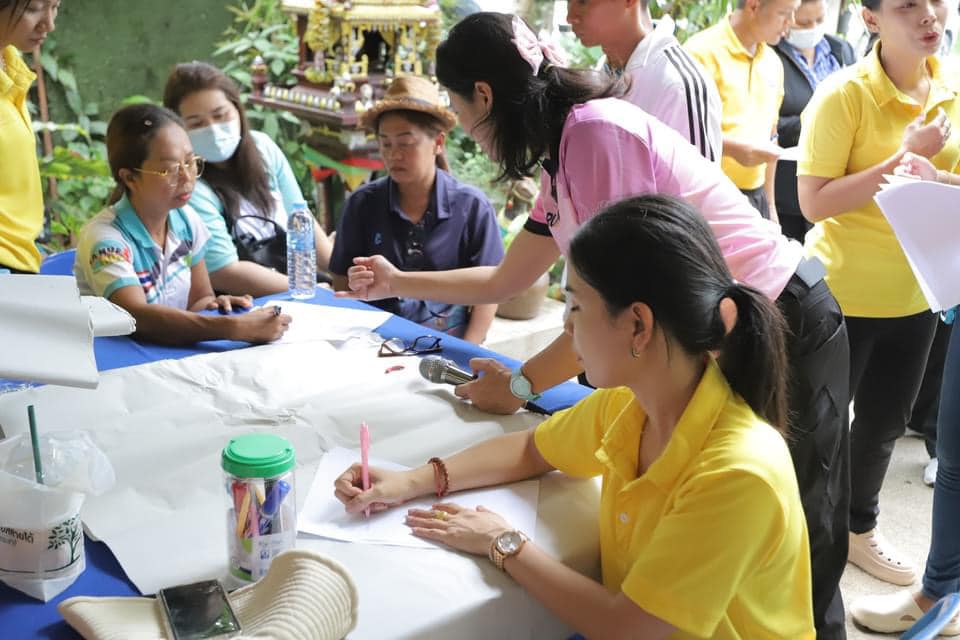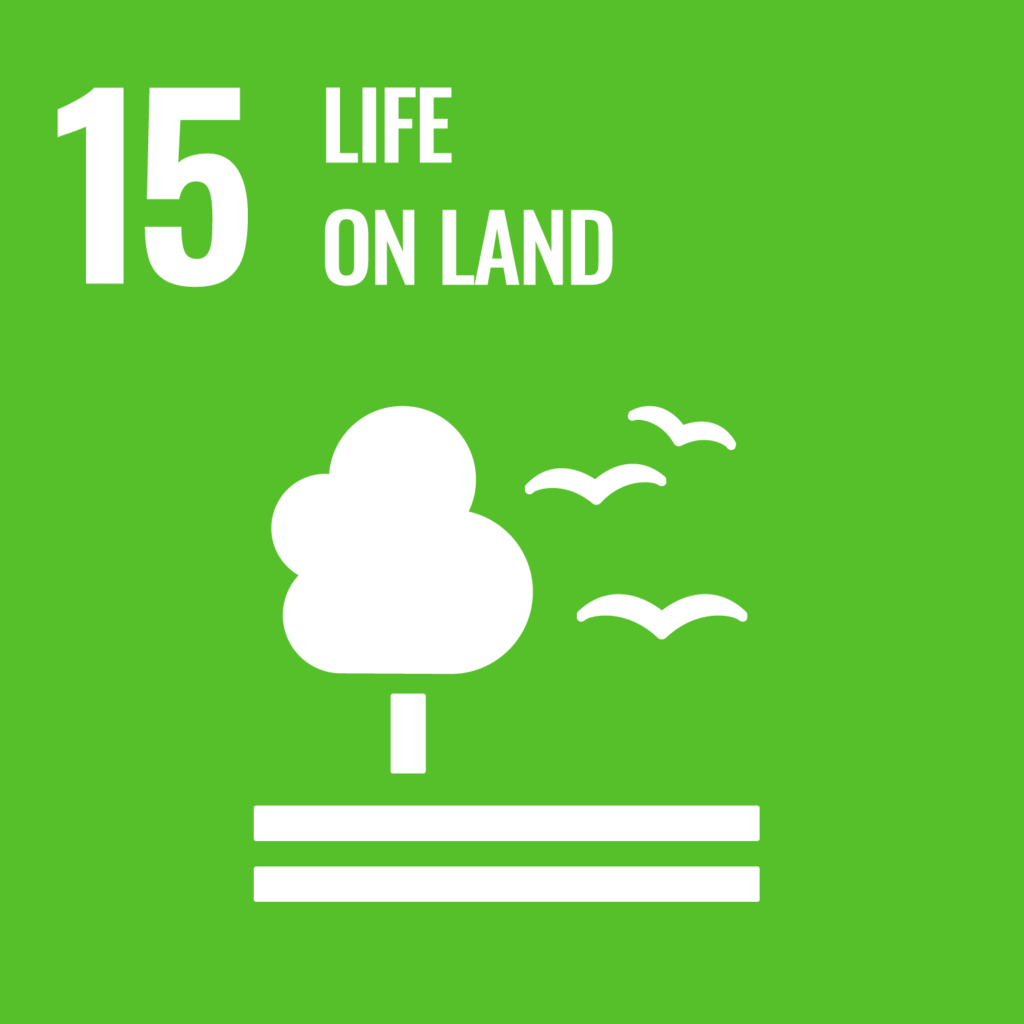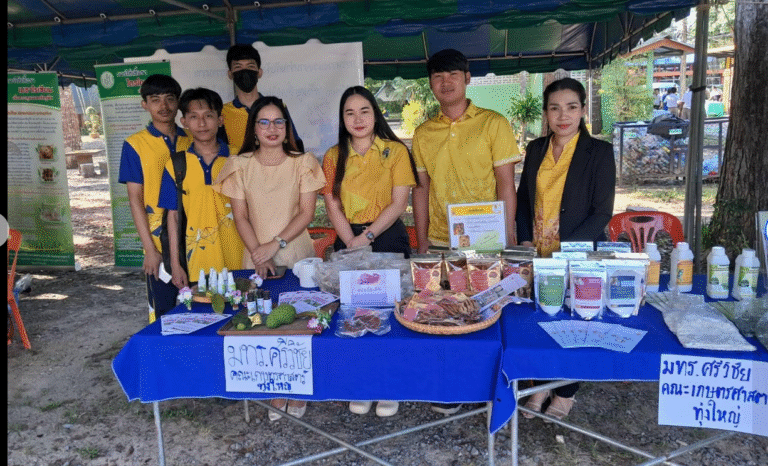Reporters: Asst.Prof.Dr. Prapot Maliwan
Assoc.Prof.Dr. Pornsil Seephueak
Asst.Prof.Dr. Nion Chirapongsathonkul
Asst.Prof.Dr. Worawitoo Meesook
Evidence Date: during 2024 Jan-Dec
Related Indicators: 15.2.4
Details:
The Faculty of Science and Technology, Rajamangala University of Technology Srivijaya (RUTS), organized a training activity for teachers from Thung Song Municipality schools focusing on biodiversity and ecosystem studies in grassland habitats. The purpose of this program was to strengthen teachers’ understanding of ecological research methods and biodiversity conservation. Participants learned about the importance of ecosystems, the interactions among organisms, and the ecological services provided by diverse species. Trainers introduced key ecological concepts and emphasized how biodiversity supports sustainable environmental management within communities. The session began with an overview of Thailand’s local biodiversity and the threats that impact species and habitats. Teachers discussed how human activities such as urbanization, pollution, and habitat fragmentation affect ecosystems. The trainers highlighted the need for integrating biodiversity awareness into education to promote long-term conservation. Teaching materials and examples from local ecosystems were used to make learning relatable and practical. The training aimed to empower educators to become leaders in environmental awareness within their schools. This first session established a strong foundation for the field-based learning activities that followed. 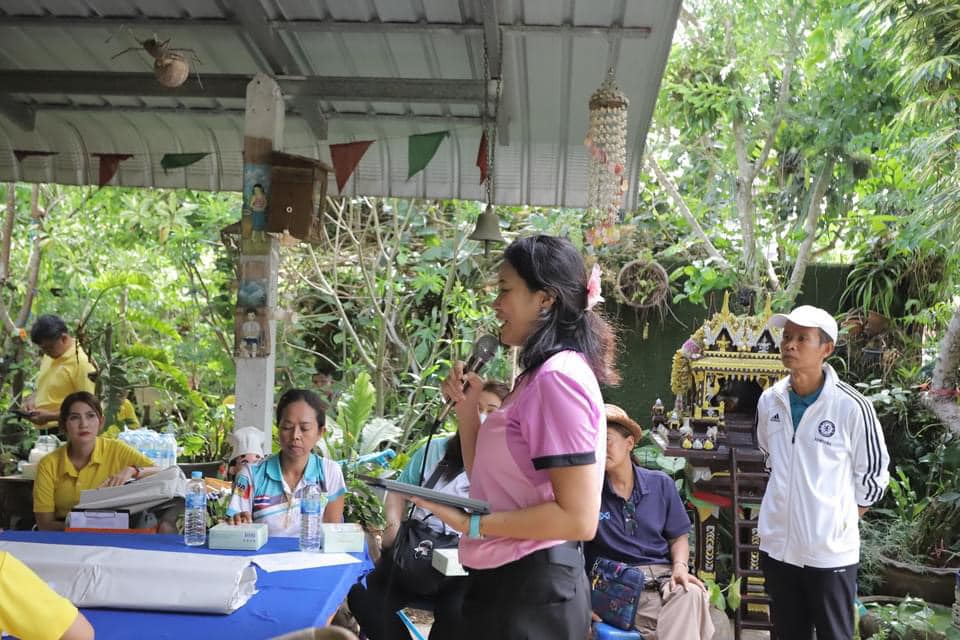
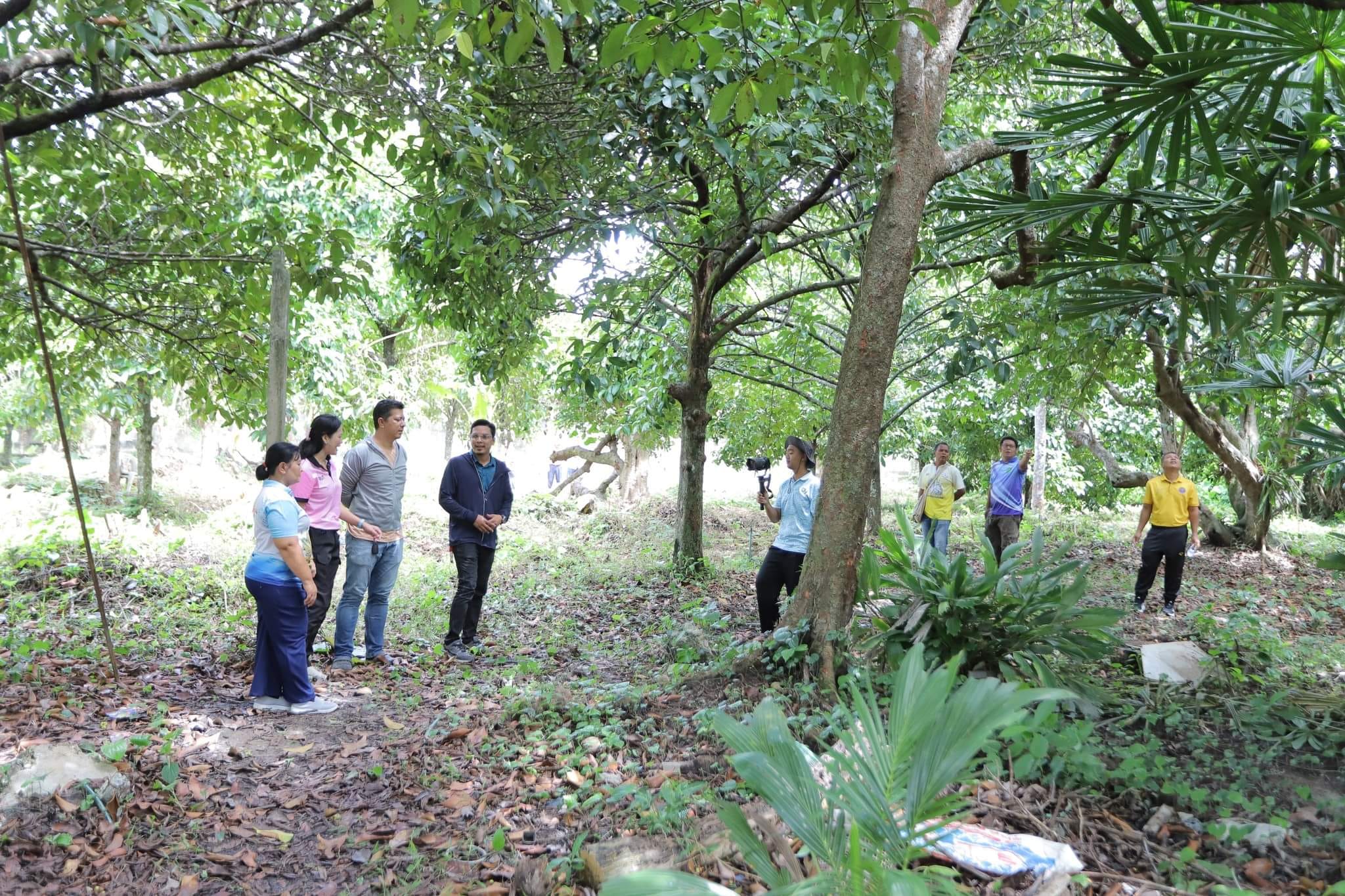
During the field-based session, teachers were trained to apply the quadrate sampling method for studying biodiversity in a grass field. The activity provided hands-on experience in setting up quadrates, identifying insects to the order level, and recording species and abundance data. Trainers guided participants through data analysis using standard ecological indices such as the Shannon–Wiener Diversity Index, Evenness Index, and Similarity Index. These analytical tools helped teachers understand how species diversity reflects ecosystem stability and health. Participants worked together to collect and analyze samples, fostering teamwork and scientific thinking. The trainers encouraged questions and discussion to ensure teachers could confidently replicate these techniques in their own classrooms. Teachers also practiced recording field data systematically and interpreting results through graphs and tables. The field session demonstrated the importance of accuracy, patience, and observation in ecological studies. It also helped teachers appreciate the complexity of ecosystems and the role of each organism within them. Overall, this session successfully bridged scientific methods with educational application.
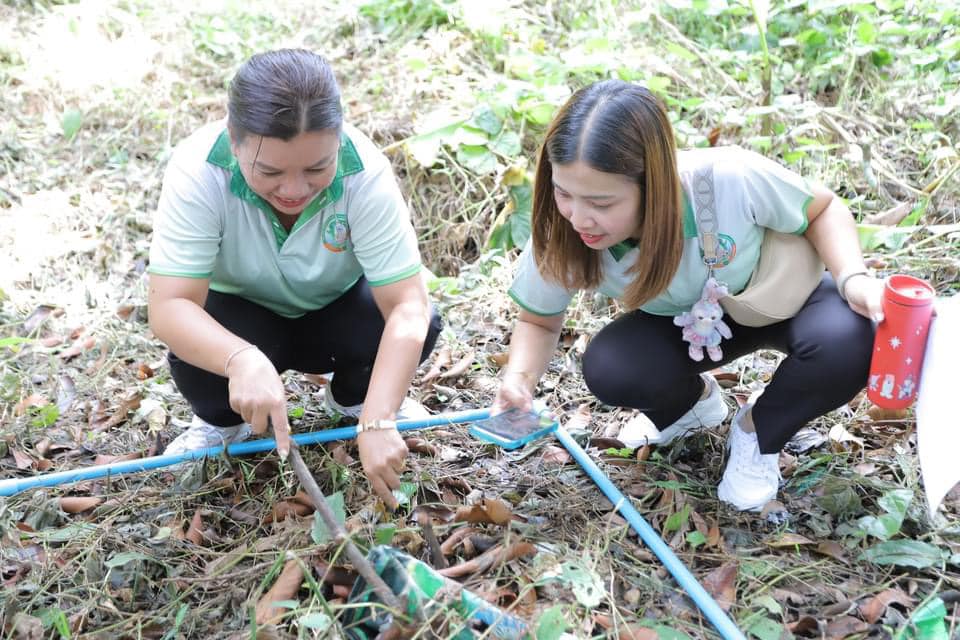
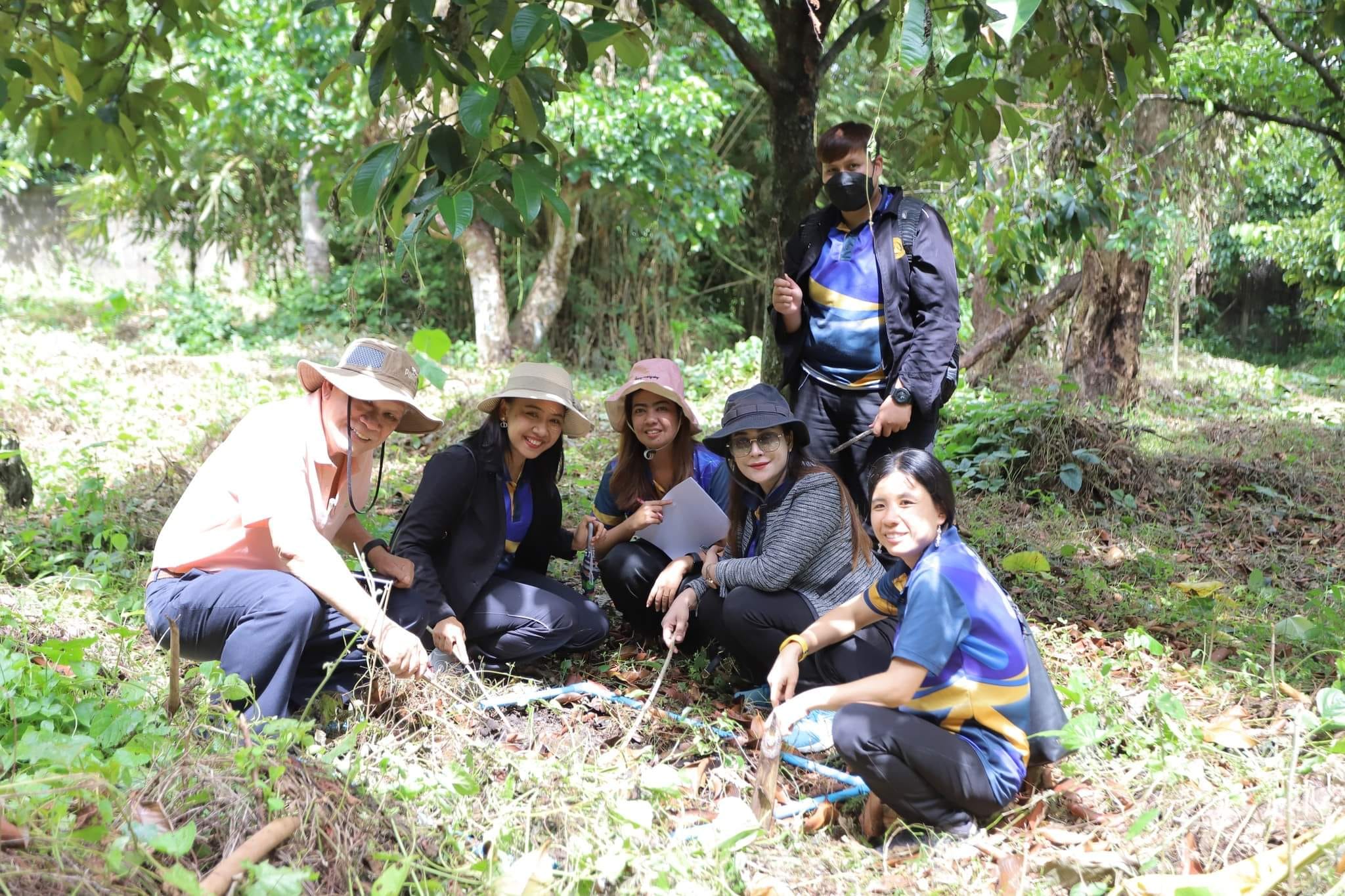
By the end of the program, teachers gained both theoretical knowledge and practical skills in biodiversity monitoring. They shared ideas for integrating ecological studies into school curricula through activities like insect surveys, plant diversity mapping, and creative ecological learning projects. Teachers proposed plans to organize outdoor learning sessions that connect students directly with nature. The trainers provided feedback on these plans and suggested ways to link field observations to classroom lessons. This initiative strengthened collaboration between RUTS and Thung Song Municipality, promoting continuous learning between universities and local schools. It also built a network of teachers who could support one another in developing environmental education programs. The training not only promoted scientific literacy but also inspired teachers to become biodiversity ambassadors, nurturing awareness of conservation and sustainability among young learners. Many teachers expressed enthusiasm about applying what they learned to inspire curiosity and responsibility in their students. The collaboration is expected to continue through follow-up workshops and shared community projects. Ultimately, this program contributed to creating a foundation for sustainable education that connects science, community, and the environment.
